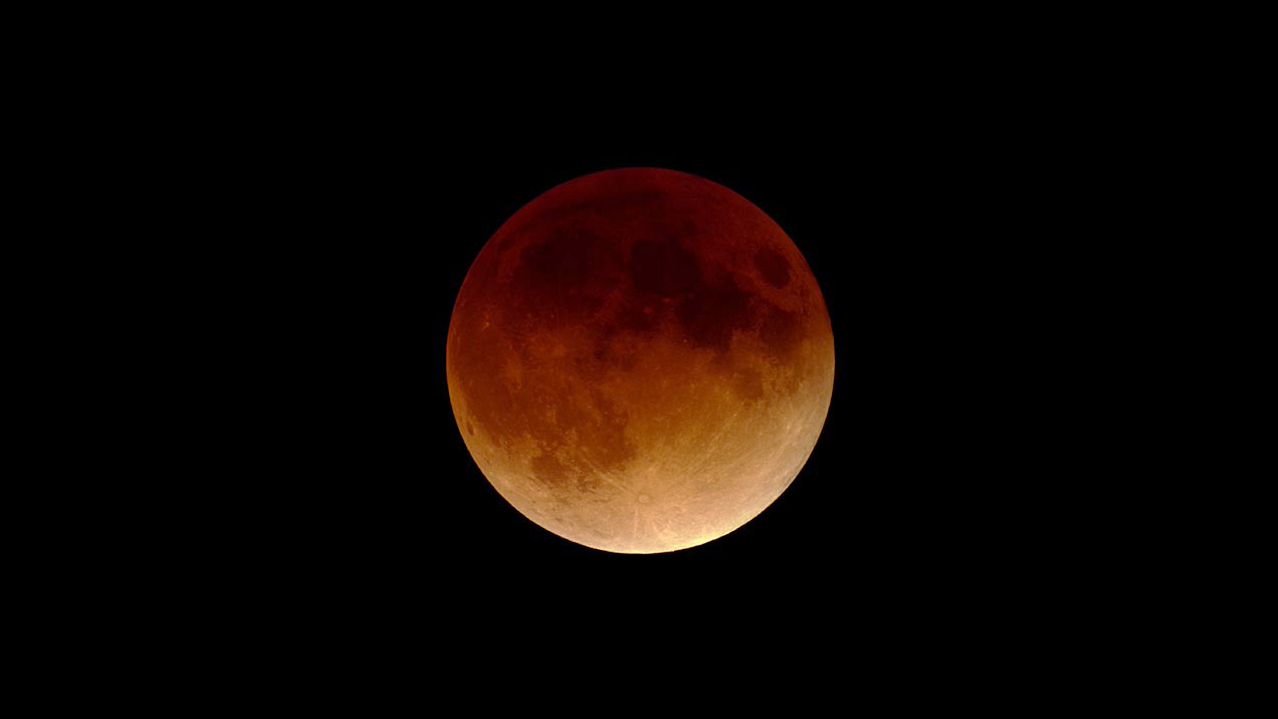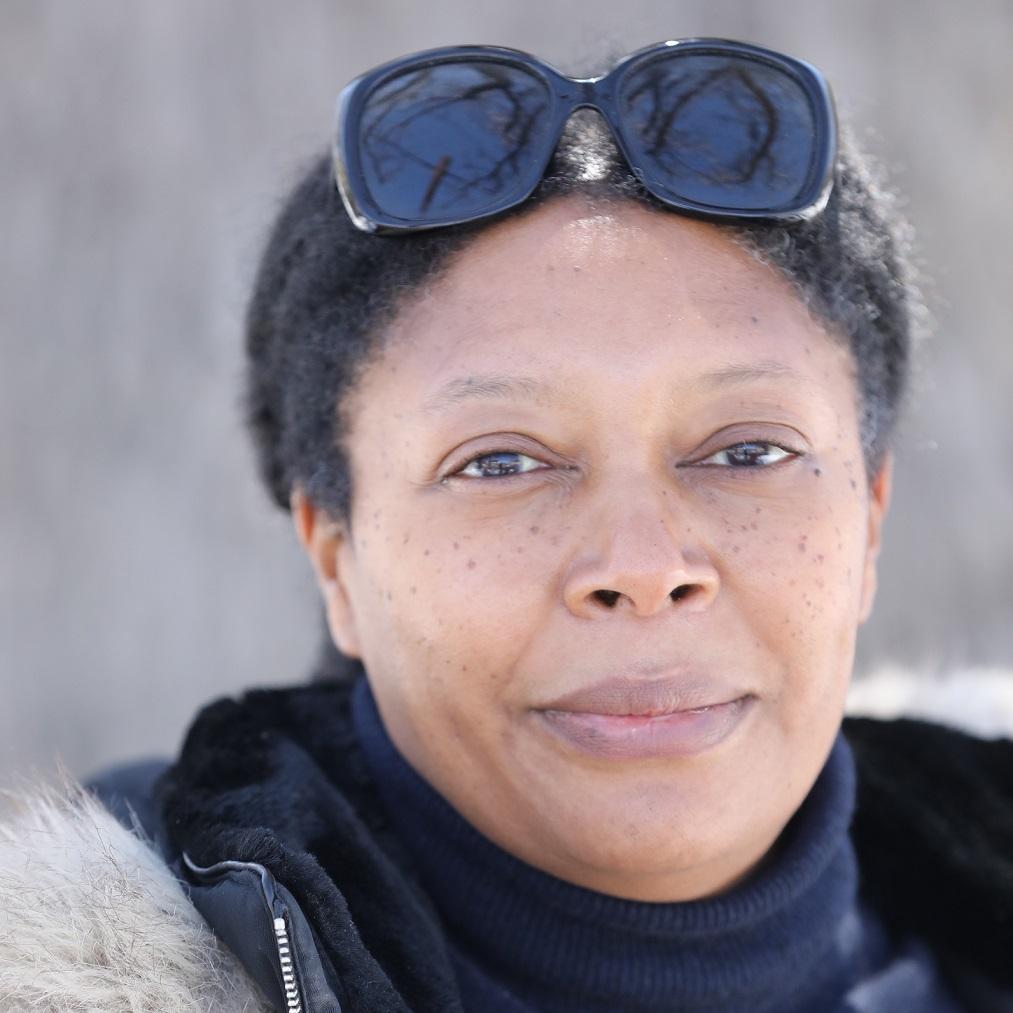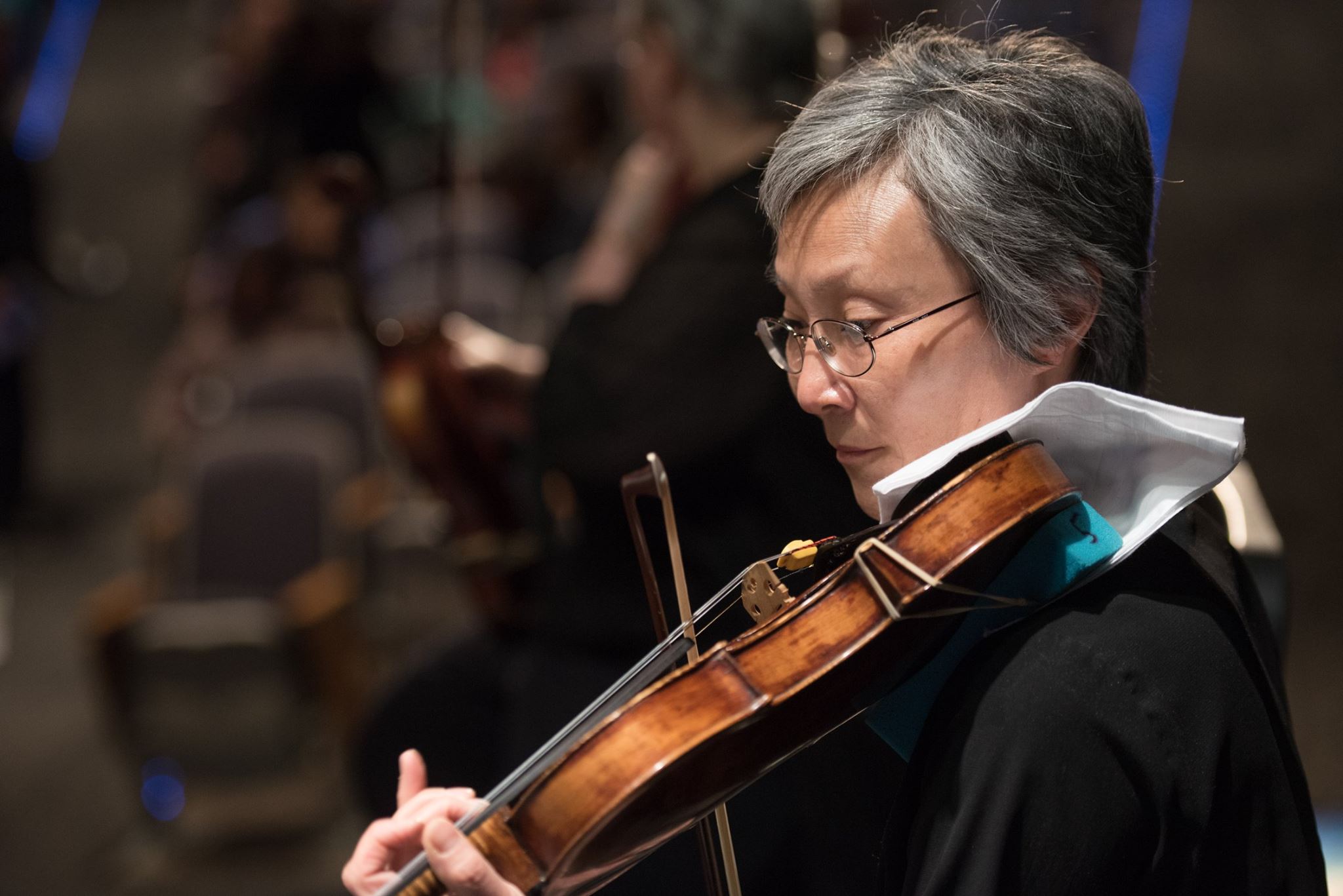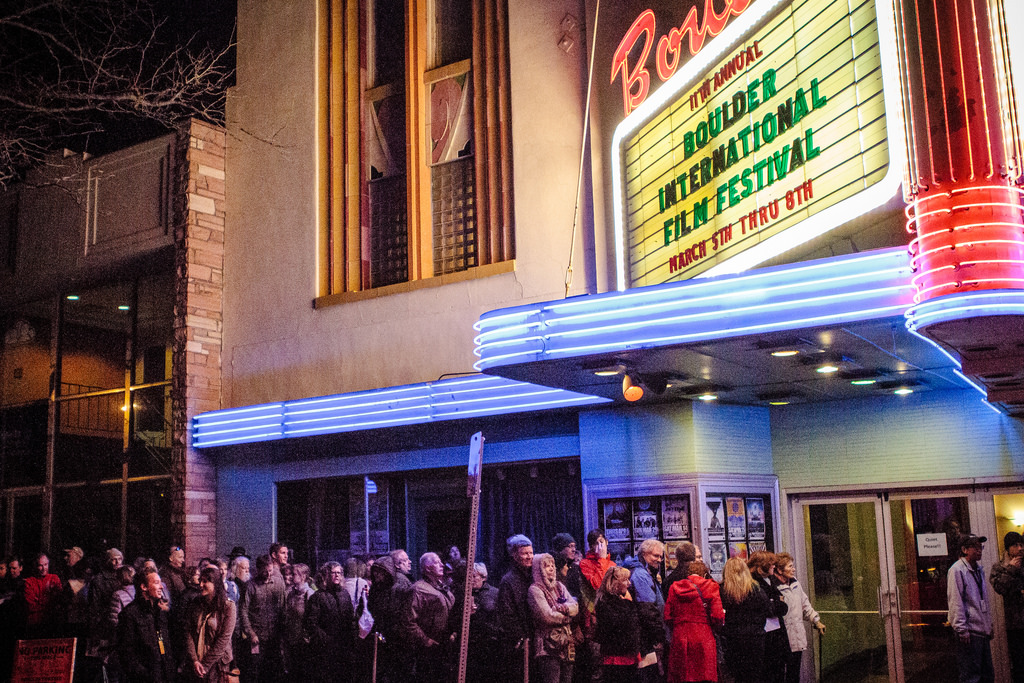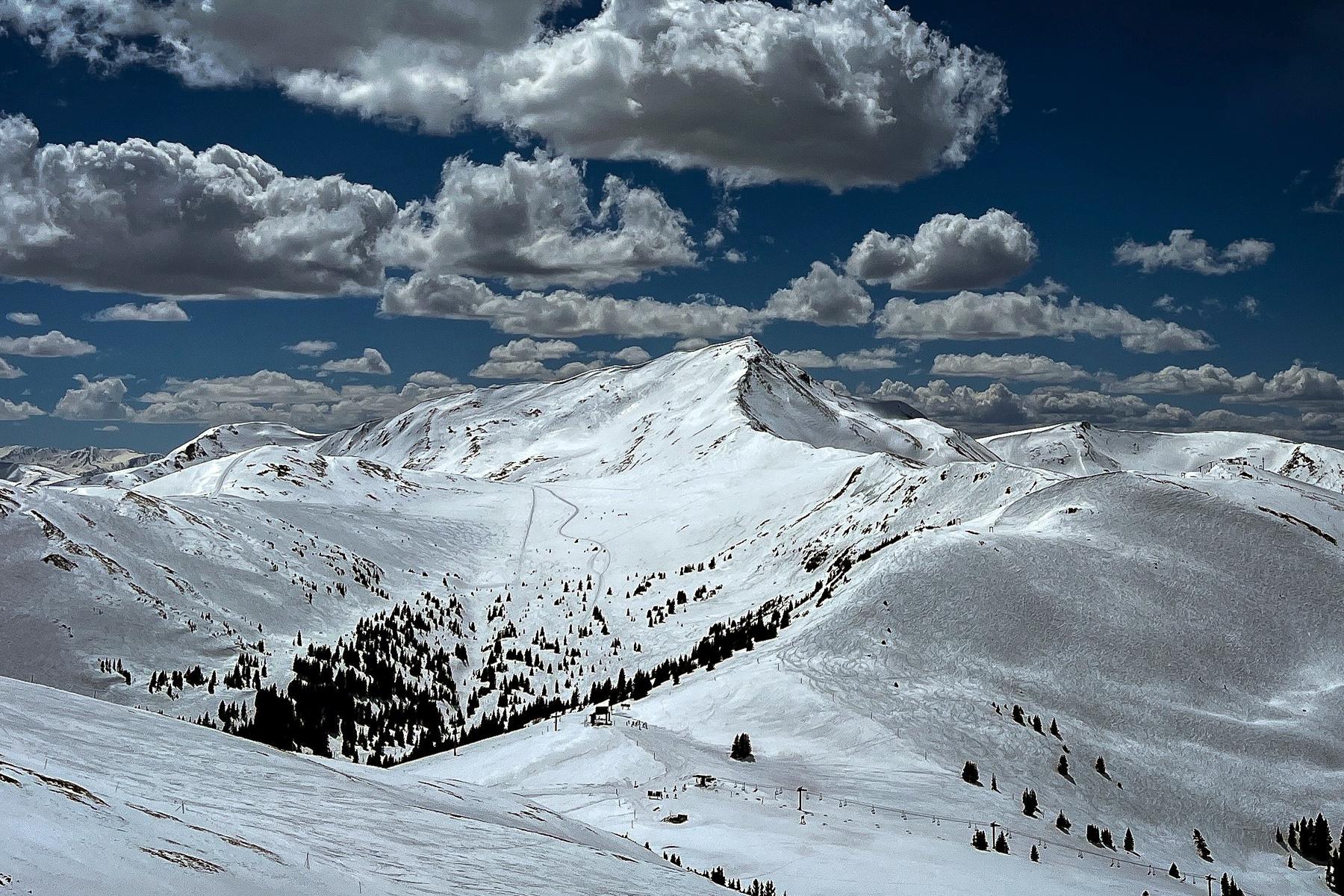
For some future voters, the path to citizenship starts in the cafeteria of a Commerce City elementary school.
That’s where dozens of legal permanent residents came on a chilly Saturday morning earlier this year to fill out their citizenship applications, copy all the necessary documents, and learn about what comes next -- all for free from volunteers.
“A lot of the community cannot afford to hire a thousand-dollar lawyer to take them through the process,” says event organizer Hilda Nucete. “That's where we come in … to be able to remove those barriers for our community.”
Nucete heads Protégete, the Latino outreach arm of the environmental organization Conservation Colorado. Helping immigrants become citizens might seem a bit out of character for a group that’s better known for trying to legalize rain barrels and save the sage grouse. But the organization believes it’s likely to find many future supporters among those new Americans.
Environmental issues have a special urgency in the Latino community, notes Nucete. Many new arrivals leave countries with extreme environmental degradation, only to settle in highly polluted neighborhoods in the United States.
“But when it comes to being a part of the decision-making process at the table – that has been a difficulty,” Nucete said. “How do we bring our community to be able to have their voices heard?”
The idea is that citizenship may give immigrants a stronger stake in local, and national, environmental issues. But Conservation Colorado’s goals are more concrete than that; the group scheduled all of its citizenship workshops early in the year, to increase the odds that participants will be able to vote in the November election.
Conservation Colorado is officially nonpartisan. But its priorities line up tightly with the Democratic agenda. Its parent organization, the League of Conservation Voters, almost exclusively supports Democratic candidates.
In recent elections Latinos have gone strongly for the Democrats, a trend that many assume will only strengthen given the anger over comments about Latinos by Republican presumptive nominee Donald Trump.
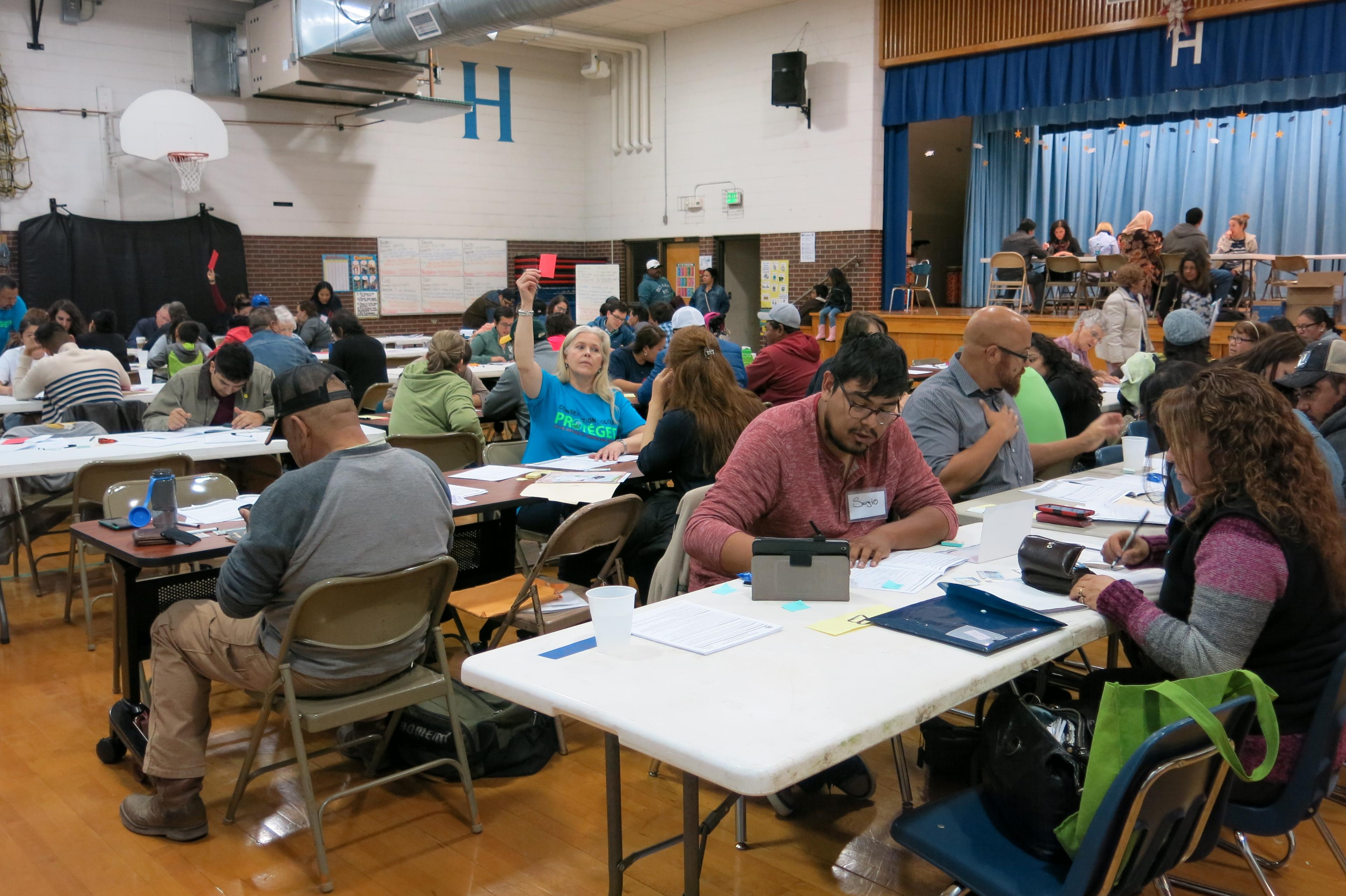
At the citizenship workshop, Conservation Colorado maintains a low profile. Other than a few volunteers in 'Protégete' t-shirts and one banner on the cafeteria wall, you'd never know an environmental group was involved at all.
In fact none of the citizenship applicants I spoke with were really aware of Conservation Colorado's role.
“Now that you tell me, it's a little surprising I guess,” said Eddie Orozco. He arrived in the U.S. from Mexico as a child and got his green card five years ago. As for why an environmental group wants to help him become a citizen? “I can't really see a direct correlation as to why they would. But thanks."
Tapping Into A Long-Ignored Group
For Conservation Colorado, this workshop is really only the first encounter in what it hopes will be a long-term relationship. Afterward, the group will reach out to encourage participants to join its ‘Promotores’ classes. The curriculum covers some of the civics knowledge needed to pass the citizenship test. But its real focus is on training people to become effective environmental advocates.
Nucete said the classes also help make the connection between big concerns like climate change and local issues like air pollution.
“It's not just polar bears and ice caps, it's really talking about our community, environmental justice, and how people are being affected,” said Nucete.
And when it comes to those issues, some polls show Latino voters are actually more interested than the general population. That runs somewhat counter to the prevailing wisdom, even within the environmental movement.
“One of the reasons why environmental groups have missed Latinos is because of this perception that they are concerned with other issues, like immigration, education, crime,” said Pitzer College political science professor and pollster Adrian Pantoja.
Pantoja cites a “disheartening” statistic from in a poll he conducted for the firm Latino Decisions: more than 80 percent of Latinos surveyed had never been contacted by an environmental organization.
In that respect, the League of Conservation Voters is ahead of the game. Protégete is one of four state-level Latino outreach programs the organization sponsors.
As a nonprofit, the League keeps its donors a secret. But factcheck.org has traced some of its money back to deep pocketed liberal supporters.
Conservation Colorado says it’s helped around 200 people apply for citizenship this year, with the goal that they'll be able to vote by November. Waiting in line to start her immigration paperwork, Denver resident Grisela Garcia said the election is her motivation too.
Speaking in Spanish, Garcia said she wants to vote this year in particular to counter what she sees as negative depictions of Hispanics in the presidential campaign.
Conservation Colorado hopes that when Garcia and other aspiring citizens do finally make it to the ballot box this fall, their choices won't just benefit certain candidates, but the environmental cause as a whole.

